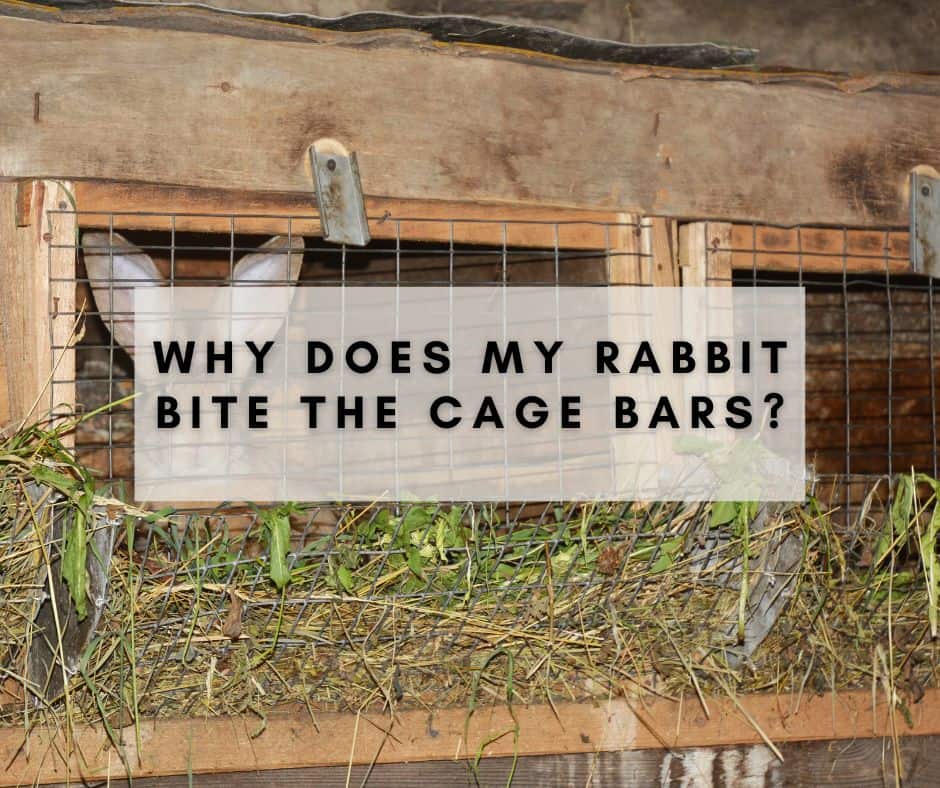
Having both a prey and a predator in one home can lead to gruesome circumstances. Especially when they’ve only just met and didn’t grow up together.
Yes, cats can possibly hurt your rabbit. While they do not have strong hunting instincts on average, they are still hunters and can therefore cause harm to those that are seen as prey.
While it’s not entirely impossible, there’s a high risk of something going wrong. Though, it still depends on your cat itself and the way they’re introduced to each other.
Contents
Cats and Rabbits Are Like Water and Oil
I’ve had both a cat and a rabbit before when I was a kid. Unfortunately, the cat attacked it during nighttime and while there was no direct contact, the rabbit got so scared that it died of shock.
It was an unfortunate incident but it taught me to be wary of the nature of these animals when they’re with each other.
That’s why it’s important to treat your cat as if they would harm your rabbit, or any other small animal, once they are left alone. This way, you will be prepared and be proactive rather than reactive.
But again, it isn’t entirely impossible. The success of their relationships is dependent on how you train your cat and how you introduce them to each other.
Will My Cat Hurt My Rabbit?
To answer this question, you have to really observe your cat and its personality. Displaying aggressive behavior in the face of other animals, especially smaller ones, may mean that your cat is prone to hunting and will hurt your rabbit.
And your cat doesn’t need to be hungry for them to kill your rabbit. Sometimes, they might just even treat it as a toy and play with it. Unfortunately for rabbits, ‘playing’ may mean getting beat up.
Although it’s important to note that most of the time, it’s the rabbits that are aggressive. According to a survey, thirteen pet owners reported their rabbits to be the aggressor while only three reported cats.
While cats may have a bad reputation for being a bit of a meanie, you shouldn’t let that overshadow a rabbit’s territorial tendencies.

Things to consider before the introduction
Introductions are necessary to house both a cat and a rabbit. It is the first step in establishing a bond and familiarity with each other.
The first thing you have to establish, aside from house rules, is to let your cat know that your rabbit isn’t food or a toy. They need to know that they’re a part of the family before you let them socialize.
Being careful
But before you introduce them, you need to make sure that your cat’s nails are properly trimmed. And if they have a habit of biting/clawing/running, you can leash your cat even if your rabbit is in a cage.
This is because your rabbit needs to feel safe so don’t let your cat be too curious. If possible, try putting them in separate rooms first and acclimate them to each other using scent instead of vision.
Adjust to their instincts
Try and find out what sets your cat into hunting something. Sometimes, it’s as simple as something running fast or moving erratically.
You can also satisfy your cat’s hunting instincts on your own so it won’t trigger as much when you introduce them to your rabbit.
It’s not just hunting instincts too, you also have to be wary of putting the animals in each other’s territory because they can be quite territorial. Letting them meet in a neutral space would be much better.
And it’s not just the cat’s instincts that you have to worry about. Rabbits, while small, will attack even if they’re afraid. So, even if the cat isn’t doing anything, your rabbit might still show aggressive behavior due to fear.
The animal’s personality
While animals of the same species display similar traits and actions, they still act differently based on their personalities.
Some might be timid, some might be innately aggressive. It’s important to know which is which as it would help in predicting the possible outcome/s of the meetup.
If your cat is prone to lunging on small insects or often brings you dead animals as a ‘gift’ then it may have a strong drive to hunt and see your rabbit as prey.
Likewise, if your rabbit bites people who step into their personal space then they are most likely territorial.
But if they’re both tolerant and don’t usually display any harmful behavior then there’s a high chance that they can get along.
Baby or Oldie?
The easiest way to introduce them is to do it at an early age. At that point, both are still trying to settle in your home and haven’t established any territories.
Letting them grow up with each other also helps them bond and see each other as a family rather than predator and prey.
Past animal interactions
When I see how my dog reacts to other dogs, I immediately knew that going to a dog park would be a bad idea. While he isn’t an aggressive dog, he can be quite territorial and over-excited.
Similar to a cat and rabbit, their past interactions should give you a hint of what is about to come down during the interaction.
You can also learn what makes them tick and plan around it once you introduce them to each other. For example, if your cat doesn’t like it when other animals touch their tail then try to avoid letting that happen.
Rabbitt and Cat Introduction
After considering all these factors, you should already plan and take all necessary precautions to make this go smoothly as possible.
Place/Environment
As we’ve previously mentioned, it’s much better to let your pets meet in a neutral space. That way, their territorial instincts won’t trigger and there’s less chance of aggressive behavior. For example, a playpen that can separate the walls.
Take it slow
If you’re planning to let them meet at home, try getting them acclimated to each other’s scent first. That way, your pets won’t get overwhelmed or overstimulated.
Leashes and cages
If your pets are particularly overexcited or temperamental, try slightly limiting their movement or chances of contact with each other.
Always be on standby
Your pets can hurt each other anytime. So, you must be always there during their first few meetings.
Make sure that you’ve already learned their triggers so you can easily use your intuition to prevent a negative situation from happening.
Repetition
They need to be used to each other’s presence. That means frequent visits and direct/indirect socialization.

Big Cat vs Little Bunny
This is the scenario that most people are expecting when introducing the pets to each other. Cats, as the bigger specie, are expected to do the most terrorizing out of the two.
And it all boils down to your cat’s perception. The cat should see the bunny as family and that it shouldn’t be harmed in any way.
While their predatory instincts may not get triggered, cats are still dangerous. It could easily kill your rabbit even if the purpose isn’t food.
If you constantly let your cat perceive their dangerous actions towards the rabbit as bad, they will gradually learn not to do it.
Discipline is key, it will go more smoothly if your cat had previous training whether it’s the discouragement of bad behavior or tricks.
Boss Bunny vs Scaredy-Cat
While it may be unexpected, it is actually the most common one to happen. Yes, your rabbits will most likely challenge an animal that’s twice their size.
It’s actually the easiest to deal with as your rabbit won’t have a high chance of killing your cat. The latter, confused and surprised, will probably scurry away.
Although, this can only happen when your rabbit has already coped up with the change and has established its territory in your home.
The important thing here is to slowly let your rabbit adjust, let them explore a small space, and make it their own.
After your rabbit is satisfied with their show of dominance, your pets will quickly form a bond and even be best friends!
What happens next?
It depends on where you’ve introduced them. If they’ve only socialized at home then outside is a completely different environment.
Nature can be a trigger for a cat’s instincts. Your rabbit running around in a grass field might push them to chase even if they’ve already been introduced.
You should let them get used to each other in different settings. That way, your cat knows that it’s bad to hurt your rabbit not just in your home but even outside of it.
Conclusion
One thing you really have to remember is that your cat can kill your rabbit any time, even if they’ve already established a bond.
And no, it’s not just about intent. Accidents can and will happen so you need to be prepared especially with the stark difference between these two pets.
All you need to do is learn everything about them. That way, you’ll be familiar with their actions and be able to prevent them from happening.




